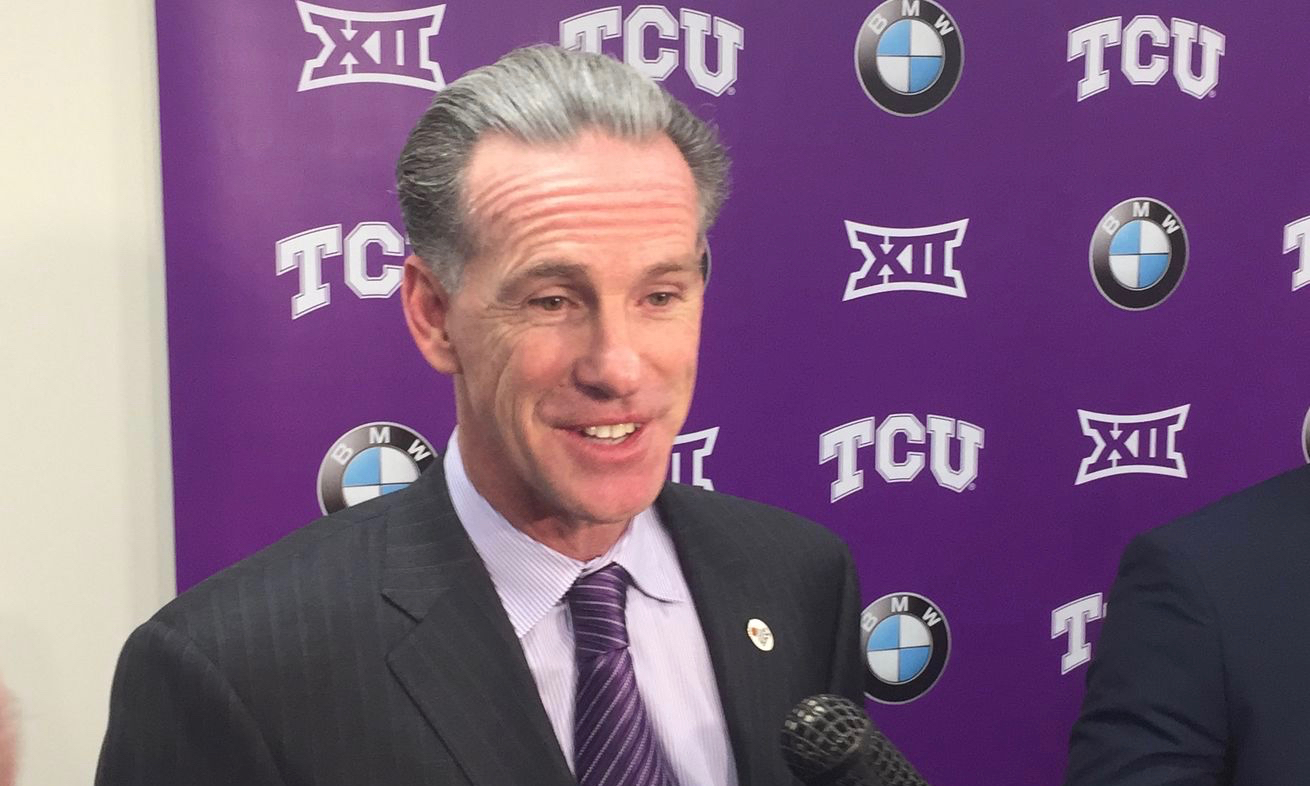Jamie Dixon is coming home to Fort Worth to coach his alma mater. Dixon played at TCU from 1984-87 and helped lead the Horned Frogs to back-to-back Southwest Conference championships during his tenure. His decision to leave Pittsburgh for TCU last week was unexpected, but is less surprising when you consider the fact that the Panther’s had won just one NCAA Tournament game in the last five seasons. Dixon’s teams have also struggled in the regular season since joining the ACC in 2013, finishing 9th (out of 15) in regular season play each of the last two seasons. However, Dixon’s recent struggles are small potatoes compared to the gruesome dumpster fire that has been TCU basketball over the past 10-15 years.
The question everybody is asking right now is whether or not Dixon can achieve any kind of success at a school that has been remarkably unsuccessful for as long as anyone can remember. The short answer to that question is “yes.” The way I see it, the Horned Frogs have three significant factors working in their favor as they seek to rebuild (can you really call it rebuilding if the team has pretty much always sucked?) their program to compete in the toughest conference in college basketball.
1. Jamie Dixon is a phenomenal basketball coach
If you had to take a guess as to who holds the record for the highest winning percentage in Big East history, who would you guess? If you said the seemingly obvious choices of Jim Boeheim, John Thompson, or Jim Calhoun, you would be wrong. Jamie Dixon’s .658 winning percentage in conference play is the highest of any coach in Big East history. Simply put: the dude can flat-out coach.
Dixon’s tenure at Pittsburgh got off to blazing hot start, winning the Big East regular-season championship in his first season as a head coach and advancing to the Sweet Sixteen. The Panthers’ 31-5 record in 2003-04 was good enough to earn him Big East Coach of the Year honors. The North Hollywood native set an NCAA Division 1 record with 163 victories in his first six seasons as a head coach. He was named National Coach of the Year in 2009 after guiding the Panthers to the Elite Eight for the first time since 1974. Unfortunately, that would be the only time that Pitt would advance past the Sweet Sixteen under Dixon.
While Dixon’s last few seasons in Pittsburgh may have been underwhelming, he has proven that he can build a historically unimpressive program into a National Championship contender. When Dixon took over the reigns as head coach at Pitt in 2004, he inherited a program that had been to the NCAA Tournament just 15 times in the previous 64 seasons. The Panthers made the Tournament 11 times in 13 seasons under Dixon. The program he now takes over has been to the NCAA tournament just seven times in its not-so-illustrious history. The odds are definitely stacked against Dixon, but he is one of the few coaches in college basketball who I believe could possibly turn such a terrible program around.
2. Low Expectations
Coach Trent Johnson set the bar so low that Dixon may trip over it as he walks into his first practice. The Horned Frogs, under Johnson, posted an atrocious 8-64 record in conference play since joining the Big 12 back in 2013. They have finished dead last in the conference 3 out of the last 4 seasons. The program has not been to the NCAA Tournament since 1998. Saying that expectations at TCU are low is an understatement. The closest this team has been to greatness over the past decade is 87 miles (if you don’t get that joke, we probably aren’t friends).
The lack of pressure from alumni and boosters to succeed immediately will give Dixon time to establish himself and build a solid program without being in constant fear for his job. Let’s not forget that we are talking about a fan base that worships Gary Patterson like he’s Vince Lombardi just because he won one* Big 12 championship and beat Baylor when they had a wide receiver playing quarterback. If Dixon can turn this team into anything more than the game on the schedule that walk-ons tell their parents to come to because there’s a good chance they’re actually going to get into the game, he will have done substantially more than his predecessor.
3. Location, location, location
Perhaps the greatest advantage that Dixon inherits at TCU (also one of the only ones) is the fact that he is now coaching at a university that is within spitting distance of some of the top high school players in the country. The Dallas/Fort Worth area has produced phenoms like Chris Bosh, Julius Randle, Emmanuel Mudiay, Marcus Smart, Phil Pressey, Darrell Arthur, and Keith Langford. While Dixon may not have much to pitch top recruits in the area right now, there is more than enough talent in Texas to build a competent college basketball team.
The past few years have seen several Big 12 coaches turn-around struggling programs in a short amount of time. Lon Kruger did it at Oklahoma, Fred Hoiberg did it at Iowa State, Scott Drew did it at Baylor, and Tubby Smith is now doing it at Texas Tech. All of the pieces necessary to build a winning program are there, TCU just hasn’t been able to find a coach that can put them all together yet. Heads up Horned Frogs nation, you’ve got your guy.




